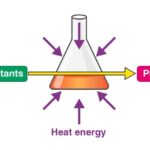Hemp seeds have gained significant popularity as a nutritional powerhouse in recent years. But what are hemp seeds, and why are they so highly regarded? This article delves into the world of hemp seeds, exploring their nutritional composition, health benefits, various uses, and potential considerations.
Hemp seeds are the seeds of the hemp plant, Cannabis sativa. Unlike other parts of the cannabis plant, hemp seeds contain only trace amounts of tetrahydrocannabinol (THC), the psychoactive compound responsible for the “high” associated with marijuana. This means that consuming hemp seeds will not produce any psychoactive effects.
Nutritional Profile of Hemp Seeds
Hemp seeds are a complete protein source, meaning they contain all nine essential amino acids that the human body cannot produce on its own. This makes them an excellent protein option for vegetarians, vegans, and anyone looking to increase their protein intake. A 3-tablespoon serving (approximately 30 grams) of hulled hemp seeds typically contains:
- Calories: 166
- Protein: 9.47 g
- Fat: 14.38 g
- Carbohydrates: 2.6 g
- Fiber: 1.2 g
Beyond protein, hemp seeds are also rich in:
- Essential Fatty Acids: Hemp seeds boast an ideal 3:1 ratio of omega-6 to omega-3 fatty acids, crucial for heart health, brain function, and inflammation reduction.
- Minerals: They are a good source of minerals like magnesium, phosphorus, potassium, zinc, iron, and manganese.
- Vitamin E: An antioxidant that protects cells from damage.
Alt: Close-up of raw hemp seeds in a rustic wooden bowl, showcasing their natural texture and color.
Health Benefits of Hemp Seeds
The rich nutritional profile of hemp seeds translates to a wide range of potential health benefits:
- Heart Health: The omega-3 fatty acids and fiber in hemp seeds can help lower cholesterol levels and reduce the risk of cardiovascular disease. Dietary nitrates also contribute to cardiovascular health.
- Reduced Inflammation: Gamma-linolenic acid (GLA), an omega-6 fatty acid found in hemp seeds, has anti-inflammatory properties that may benefit conditions like arthritis and eczema.
- Improved Skin Health: Hemp seed oil has been shown to improve the symptoms of atopic dermatitis (eczema) due to its essential fatty acid content.
- Hormonal Balance: Some studies suggest that the GLA in hemp seeds may help alleviate symptoms of premenstrual syndrome (PMS).
- Digestive Health: The fiber content of hemp seeds promotes healthy digestion and can help prevent constipation. Dietary fiber is essential for a healthy diet.
- Muscle Building & Repair: As a complete protein, hemp seeds provide the necessary building blocks for muscle growth and repair.
How to Use Hemp Seeds
Hemp seeds are incredibly versatile and can be easily incorporated into your diet:
- Raw: Sprinkle them on salads, yogurt, oatmeal, or cereal.
- Smoothies: Blend them into smoothies for a protein and nutrient boost.
- Baking: Add them to bread, muffins, or granola bars.
- Hemp Milk: Blend hemp seeds with water and strain for a dairy-free milk alternative.
- Hemp Oil: Use hemp oil as a salad dressing or drizzle it over cooked dishes. Note that hemp oil is not suitable for high-heat cooking.
Potential Considerations
While hemp seeds are generally considered safe, there are a few potential considerations to keep in mind:
- Drug Tests: While hemp seeds contain very low levels of THC, consuming large amounts could potentially lead to a false positive on a drug test.
- Blood Thinning: Hemp seeds may have a mild blood-thinning effect, so individuals taking blood-thinning medications should consult with their doctor before consuming them regularly.
- Pregnancy and Breastfeeding: There is limited research on the safety of hemp seeds during pregnancy and breastfeeding. It’s best to consult with a healthcare professional before consuming them if you are pregnant or breastfeeding.
- THC Content: Although hemp seeds contain trace amounts of THC, the level is negligible and will not cause any psychoactive effects. However, it’s important to purchase hemp seeds from reputable sources to ensure that they meet legal THC limits.
Alt: Hemp seeds being added to a blender with fresh fruits, illustrating a healthy way to incorporate them into a smoothie for added nutrition.
Hemp Seeds vs. CBD
It’s crucial to distinguish between hemp seeds and cannabidiol (CBD). While both come from the hemp plant, they are different components with distinct properties. Hemp seeds are primarily valued for their nutritional content, while CBD is extracted from the flowers and leaves of the hemp plant and is known for its potential therapeutic effects.
Conclusion
What are hemp seeds? They are a nutritional powerhouse offering a wide range of health benefits. From heart health and reduced inflammation to improved skin health and hormonal balance, hemp seeds are a valuable addition to a healthy diet. Their versatility makes them easy to incorporate into various meals and snacks. As with any dietary change, it’s always a good idea to consult with a healthcare professional, especially if you have any underlying health conditions or are taking medications.
